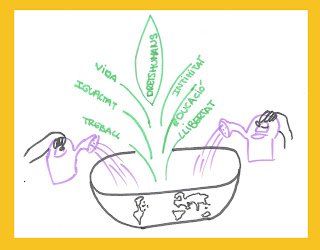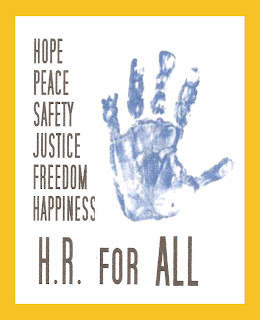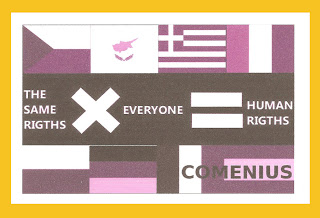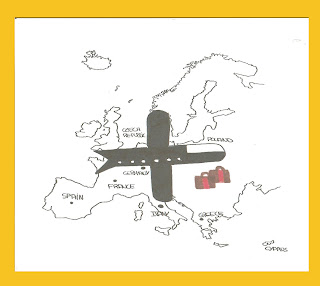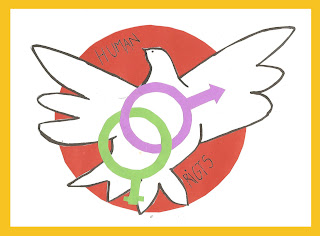In the 4th Comenius Meeting in Poraj, the Polish delegation asked us to prepare a lesson for Polish students. Mrs. Katarzyna Kazmierczak welcomed the Spanish delegation in her history class and we prepared an art class for 3rd year students on Picasso’s Gernika.
The goal of the lesson was to observe and interpret a work of art through our emotions, feelings, and reactions to the painting, without mentioning the artist, the title and the context of the painting
This is exactly the opposite of what we usually do when we visit an art exhibition. There we tend to read the name of the artist first, then we read the title of the work of art, and finally we look at the work of art. Then, we move quickly onto the next work of art.
We projected Picasso’s Gernika on the wall and allowed students to contemplate the painting in silence for 2 minutes. Then we began a group discussion through these questions.
1. What can you see?
2. What does this painting suggest to you?
3. How do you feel when you look at the painting? (emotions, feelings…)
4. What are the colours in the painting? Why these colours?
5. When you first look at this painting, where exactly do your eyes go first, and second…?
6. What’s the visual composition of the painting? How is space organised? (forefront, background…)
7. What characters can you see? Can you describe them? Do you think these drawings are realistic?
8. Which character in the painting seems more outstanding to you? Why?
9. Say a single word which summarises your feelings towards this painting? (a noun, an adjective…)
10. What title would you choose for this painting?
11. Could this painting represent a current affair somewhere in the world?
Then we talked about Pablo Picasso and the historic context of the painting. We also showed them this video on occasion of the 75th anniversary of the Gernika.
The final task for students was to colour their own Gernika so that it could convey positive emotions such as optimism, glee and hope. Here you are the Gernika covers of Polish and Comenius students in Mrs. Kazmierczak’s class.
These are the fantastic cover versions of Picasso’s Gernika which students created.
The goal of the lesson was to observe and interpret a work of art through our emotions, feelings, and reactions to the painting, without mentioning the artist, the title and the context of the painting
This is exactly the opposite of what we usually do when we visit an art exhibition. There we tend to read the name of the artist first, then we read the title of the work of art, and finally we look at the work of art. Then, we move quickly onto the next work of art.
We projected Picasso’s Gernika on the wall and allowed students to contemplate the painting in silence for 2 minutes. Then we began a group discussion through these questions.
1. What can you see?
2. What does this painting suggest to you?
3. How do you feel when you look at the painting? (emotions, feelings…)
4. What are the colours in the painting? Why these colours?
5. When you first look at this painting, where exactly do your eyes go first, and second…?
6. What’s the visual composition of the painting? How is space organised? (forefront, background…)
7. What characters can you see? Can you describe them? Do you think these drawings are realistic?
8. Which character in the painting seems more outstanding to you? Why?
9. Say a single word which summarises your feelings towards this painting? (a noun, an adjective…)
10. What title would you choose for this painting?
11. Could this painting represent a current affair somewhere in the world?
Then we talked about Pablo Picasso and the historic context of the painting. We also showed them this video on occasion of the 75th anniversary of the Gernika.
These are the fantastic cover versions of Picasso’s Gernika which students created.



